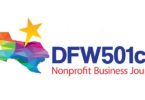In 2018, Communities Foundation of Texas committed to using its efforts and influence to create thriving communities for all. While COVID-19 changed our world in many ways this year, it did not change the relevance of this goal. Even in the midst of surviving a global pandemic, we’re finding that our eyes and actions must stay trained on matters of thriving – so that life for each person our work touches remains sustainable through times of both prosperity and unsteadiness.
So, what does this focus look like at work? We want to be working with you, our partners – nonprofits, donors, and foundation peers – to build out a network of thriving communities for all. In these communities, every person feels cared for, invested in, nourished, valued, and has equitable opportunities to contribute and engage. It is a dream you likely share if you are reading this, and one we can all rally behind to make progress in a monumental way.
Our aim is to move people from surviving to thriving across the areas of health, wealth, living and learning – the four pillars of our work – through the lenses of equity, connectedness and belonging. Within this effort, we don’t want incremental gains for people. Our target is 360° of Thriving for individuals and communities across each of these pillars.
For CFT’s Philanthropy department, this means looking at the Social Determinants of Thriving – the conditions in which people are born, grow, live, work and age. In 2020, where you end up in life is still highly influenced by what your family’s income was when you were a child, the level of education your parents reached (and then yourself), your neighborhood and physical environment, your race or ethnicity, your employment, your social support networks, and whether you have access to health care.
A few examples:
- To move the needle on health issues among vulnerable groups, we have to shift the focus from only examining people’s bodies through a clinical microscope to studying the impact of things such as housing, a person’s access to fresh food, and the number of meaningful social connections they have in their lives.
- While most people living in poverty have jobs, millions of adults are still living paycheck to paycheck and are unable to cover a surprise expense – demonstrating that employment is not enough to ensure financial security. We must aim for financial resilience in the face of economic shocks, pathways to progressively improving opportunities, and the state of prosperity in which people have money to fulfill their needs and many of their wants.
- Zip code can be more predictive than genetic code when it comes to life outcomes. Decisions surrounding planning, community engagement and design, as well as the presence of crime prevention strategies and justice system processes, can have a significant impact on the physical, social, and mental health of community members and their ability to thrive today and across generations.
- The social determinants of educational success aren’t only grade related. They include students coming to school well-nourished, loved, and without social-emotional matters flooding their thoughts to distract them from the matter of learning (such as issues around their living situation and their family’s safety).
The structure of our Philanthropy department is changing to support this evolving approach. Each member of our team is working to become subject matter experts within the four pillars of our 360° of Thriving ecosystem. You can see which pillar each philanthropy team member is dedicating their time and effort to on our website.
We’re also doing what we can during this crazy upside-down pandemic year to simplify the grant application process, while also increasing access to funding opportunities for all nonprofits. From March to October of this year, we used North Texas Cares grant application submissions to review potential matches for our discretionary funding dollars, as well as for possible grants from the W.W. Caruth, Jr. Fund. This has allowed nonprofits to apply through one application door, and from there, CFT staff has been able to determine the grants for which each agency’s work fits best. Cutting down on extra applications during this time is one way we can lessen administrative burden on agencies. We know that during these times, every extra moment reclaimed counts.
While we won’t open up another Request for Proposals process until sometime in 2021 because we’re still reading the 770 North Texas Cares second phase applications that were received by the October 2 deadline, we’re working on what else we can to do to support you in the interim. This includes putting together a series of online conversations and learning opportunities for our partners related to our reflections and insights about the work of grantmaking and philanthropy. Our new Where Organizations Thrive series will feature topics such as what we look for as we’re reading grants, how to think about your own work and your grant applications in terms of the innovation life cycle; human-centered design 101 for nonprofit programs, and more. You will soon be able to find a listing of these on our website – be on the lookout for emails sharing this new virtual series.
We look forward to doing what we can to support you in a variety of ways, including partnering with you through conversation and in relationship as we link arms together to be the change we all wish to see in the world.
Questions? Send us an email at grants@cftexas.org.








